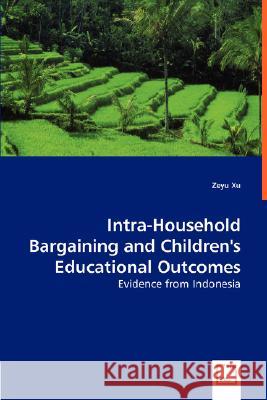Intra-Household Bargaining and Children's Educational Outcomes - Evidence from Indonesia » książka
Intra-Household Bargaining and Children's Educational Outcomes - Evidence from Indonesia
ISBN-13: 9783836481571 / Angielski / Miękka / 2008 / 116 str.
The majority of todays research on family and childrens education is based on the unitary household framework where household members are assumed to pool their resources and parental preferences are systematically aggregated. By contrast, "bargaining" models relax those stringent and unrealistic assumptions. Using a unique data set from Indonesia, this work applies a collective non-unitary household model to the analysis of household decision-making and its impact on childrens education. Using pre-marital assets brought to a household upon marriage as an exogenous proxy of intra-household bargaining power, this study finds that the share of household expenditure spent on childrens education and their math and cognitive assessment scores are positively related to higher maternal economic status relative to paternal economic status, evidence indicative of heterogeneous preferences between mothers and fathers.This book sheds some light on the decision-making process within family and is useful to educators, policymakers, and researchers who seek effective interventions to improve child learning.











